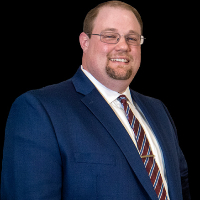Bethune White Collar Crime Lawyer, South Carolina
Sponsored Law Firm
-
 x
x

Click For More Info:
-
The Law Offices of Richard L. Cooper, P.A.
848 Brickell Avenue Suite 800 Miami, FL 33131» view mapDWI/DUI, Drug Trafficking, Felony Nationally Ranked Top 40 Under 40
With Richard L. Cooper you can expect a trusted confidant who will work diligently to fully understand your case and determine a road map to help you regain control of your life.
800-756-2781
Dayne C. Phillips
Criminal, DUI-DWI, Misdemeanor, Felony, White Collar Crime
Dayne Phillips is a lawyer in the state of South Carolina who handles cases in the area of criminal law. He has tried cases dealing with dui, gun ... (more)
Jacob Taylor Bell
✓ VERIFIEDCriminal, White Collar Crime, Juvenile Law, DUI-DWI, Felony
Ask J. Taylor Bell what he most enjoys about his criminal defense law practice and his response is unequivocal: “Fighting the power.” “Criminal ... (more)
Alex Thomas Postic
Workers' Compensation, Divorce, Farms, White Collar Crime
Status: In Good Standing
James Mixon Griffin
Medical Products & Devices, White Collar Crime, Administrative Law, Medical Malpractice
Status: In Good Standing
David Bennett Tarr
Traffic, White Collar Crime, DUI-DWI, Criminal
Status: In Good Standing Licensed: 29 Years
Leland B. Greeley
Lawsuit & Dispute, White Collar Crime, DUI-DWI, Criminal
Status: In Good Standing Licensed: 38 Years

 Richard L. Cooper Miami, FL
Richard L. Cooper Miami, FL AboutMiami Attorney at Law
AboutMiami Attorney at Law ServicesCriminal Defense
ServicesCriminal Defense


